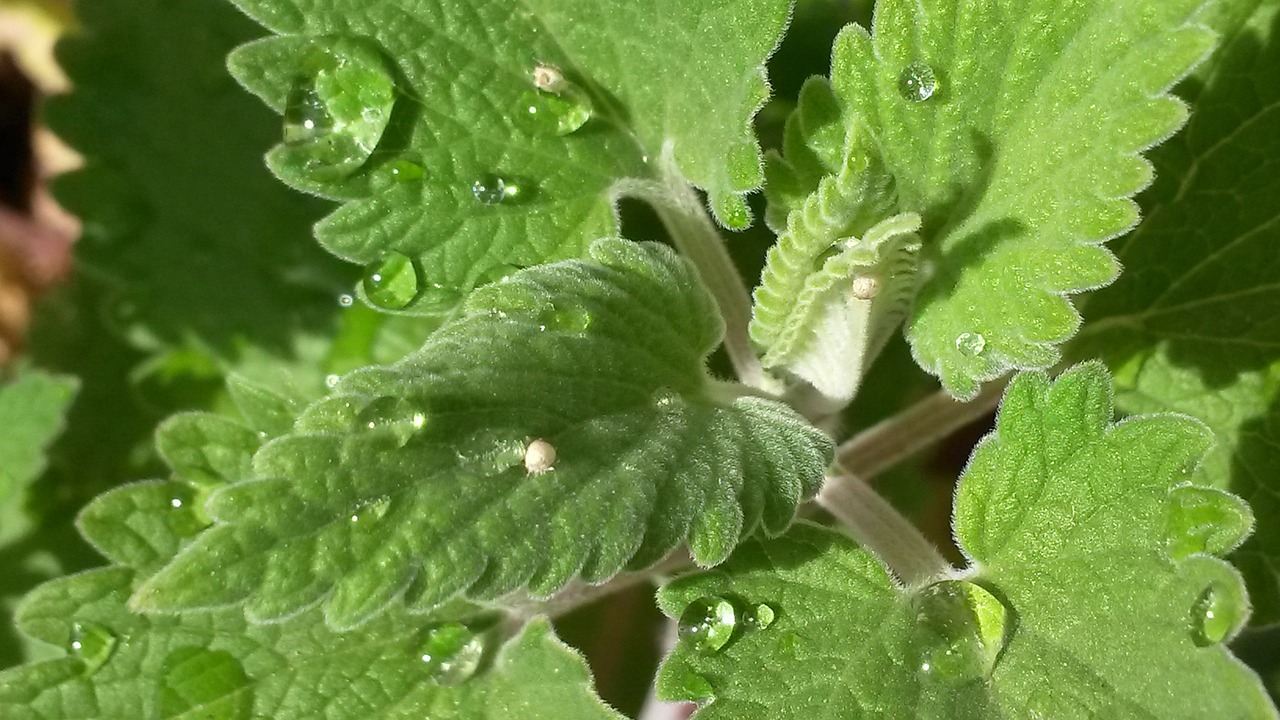Catnip, scientifically known as Nepeta cataria, is a herbaceous plant that has a magical allure over our feline companions. Native to Europe and Asia, this member of the mint family, Lamiaceae, is renowned for its captivating effect on cats, eliciting playful behaviors and moments of blissful abandon.
The key to catnip’s enchantment lies in its aromatic compound, nepetalactone, found in the leaves and stems of the plant. When cats come into contact with catnip, whether by sniffing, licking, or rubbing against it, the nepetalactone binds to receptors in their sensory neurons, triggering a response that ranges from joyous friskiness to dreamy relaxation.
Not all cats are equally susceptible to the effects of catnip. Genetics play a role, and approximately 50 to 75 percent of cats exhibit a heightened sensitivity to this intriguing herb. For those cats that do react, the response is highly individualized, with some becoming playful and energetic, others becoming more mellow, and a few becoming temporarily disinterested.
Aside from its playful effects on felines, catnip has also been cherished by humans for its medicinal properties and culinary uses. In herbal medicine, catnip tea is popular for its soothing properties, known to ease digestive discomfort, anxiety, and insomnia. Its calming effects extend beyond our feline friends, proving beneficial to humans in need of relaxation and stress relief.
In the garden, catnip is an easy-to-grow and low-maintenance plant, making it a favorite among gardeners. Its lovely spikes of lavender-blue flowers add beauty to outdoor spaces while attracting beneficial pollinators like bees and butterflies. However, for those with indoor cats, it’s essential to ensure the plant’s safety, as cats may become overenthusiastic and potentially harm the plant during their playful escapades.
Throughout history, catnip has had cultural significance in different regions. Ancient Egyptians revered it for its ability to bring good luck, while Europeans once used it as a seasoning in cooking. In the Middle Ages, it was believed to have healing properties, and even today, it remains a popular choice in herbal remedies.
In conclusion, catnip is a fascinating and enchanting herb that brings joy to both cats and their human companions. Its natural allure and medicinal benefits make it a cherished addition to gardens and a delightful herbal remedy for various ailments. As we continue to appreciate the bond between cats and catnip, this magical plant remains a source of amusement, wonder, and fascination in the world of pets and herbal medicine.
